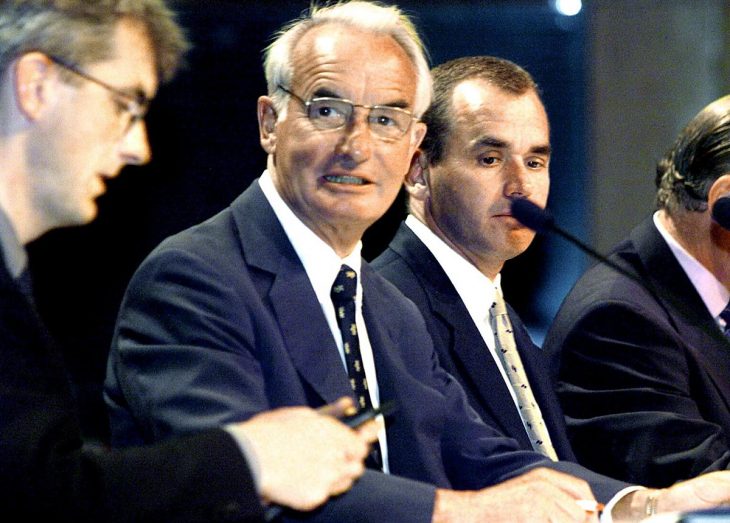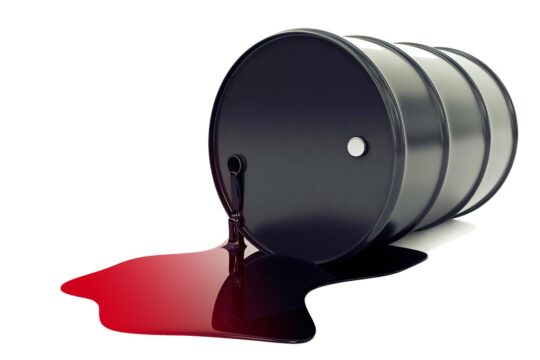Announcing the decision this week, Swedish Justice Minister Morgan Johansson warned that the case could land Lundin Petroleum’s Swiss CEO Alex Schneiter, who was head of exploration at the time, and Swedish chairman Ian Lundin – who lives in Switzerland – in prison for life. The government’s approval is necessary for the Prosecutor to move on with the case because the alleged crimes took place outside the country. According to Sweden’s Justice Ministry, the charges relate to funds that Lundin Petroleum allegedly provided to the Sudanese army and death squads responsible for clearing pockets of the local population in areas where the company would carry out oil exploration activities.
I think there are no cases of multi-billion dollar companies actually indicted for war crimes since Nuremberg. I think it’s a first
“I think there are no cases of multi-billion dollar companies actually indicted for war crimes since Nuremberg. I think it’s a first,” says Egbert Wesselink of the Dutch peace movement Pax, part of an NGO coalition whose report sparked the investigation. “There have been some cases of small businessmen and there are some cases of crimes against humanity, but they are all still in the investigative state, so this would be pretty unique. And these are big crimes. This is actually aiding and abetting the killing of thousands of people, forced displacement of 150 to 200 thousand people, the destruction of an entire area, rape, looting…”
Alleged complicity in crimes against humanity
But Lundin vigorously denies the allegations. “We find it totally unacceptable that the Ministry of Justice has decided to approve the prosecutor’s application to pursue the case,” the company stated in a written response to questions from JusticeInfo. “Strong submissions were made to the Ministry, supported by independent expert legal opinion, highlighting the jurisdictional and legal flaws why it should not be allowed to proceed, which we fear have not properly been taken into account. The investigation is now in its ninth year and we are increasingly concerned about the fairness of it. We will strongly contest the case if a decision is made to proceed to trial.”
The case was opened in 2010 after a report published by the European Coalition on Oil in Sudan (ECOS) was sent to Sweden’s public prosecutor. According to aid and human rights groups, up to 12,000 Sudanese died of starvation and 160,000 people were displaced in areas were Lundin was active between 1997 and 2003. The ECOS report says that “the actual perpetrators of the reported crimes were the armed forces of the Government of Sudan and a variety of local armed groups that were either allied to the Government or its main opponent, the Sudan People’s Liberation Movement/Army (SPLM/A)” but that an oil consortium led by Lundin “may have been complicit in the commission of war crimes and crimes against humanity”.
The indictment has not yet been issued, but charges would likely be “aiding and abetting international crimes”, according to Wesselink, a senior advisor at Pax, which held the ECOS secretariat and continues to monitor the case. “I don’t know if it will be restricted to crimes against humanity or also war crimes. But there is a good possibility it could also be war crimes,” he told JusticeInfo.
Lundin: One of Europe’s largest independent oil companies
Lundin is one of Europe’s largest independent oil companies, whose main activity is now oil production and exploration in Norway. It sold its oil interests in Sudan in 2003.
Allegations relate to events between 1997 and 2003 in Block 5A, an area which is now in north-central South Sudan but was at that time still part of Sudan. The government in Khartoum waged a decades-long war against the oil-rich south before the 2005 Comprehensive Peace Agreement paved the way for South Sudan’s independence in 2011.
According to the ECOS report, Swedish oil company Lundin Oil AB (“Lundin”) formed a consortium in 1997 with Petronas Carigali Overseas Sdn Bhd (“Petronas”) from Malaysia, OMV (Sudan), Exploration GmbH (“OMV”) from Austria, and the Sudanese state-owned oil company Sudapet Ltd. The Lundin Consortium signed a contract with the government in Khartoum for the exploitation of oil in concession Block 5A that was not at that time under full government control. “The start of oil exploitation set off a vicious war in the area,” according to the report. “Between 1997 and 2003, international crimes were committed on a large scale in what was essentially a military campaign by the Government of Sudan to secure and take control of the oil fields in Block 5A”.
The crimes, according to the report, include “indiscriminate attacks and intentional targeting of civilians, burning of shelters, pillage, destruction of objects necessary for survival, unlawful killing of civilians, rape of women, abduction of children, torture, and forced displacement”. It also says that “satellite pictures taken between 1994 and 2003 show that the Lundin Consortium’s activities in Block 5A coincided with a spectacular drop in agricultural land use”.
“A force for development”
So if these abuses were committed by parties to the Sudanese conflict, what is the alleged responsibility of the oil companies? “As research in this report makes clear, throughout the war the Consortium worked alongside the perpetrators of international crimes,” say the ECOS researchers. “Its infrastructure enabled the commission of crimes by others. Taking into account the overwhelming body of reporting at the time, the members of the Lundin Consortium should have been aware of the abuses committed by the armed groups that partly provided for their security needs. However, they continued to work with the Sudanese Government, its agencies and its army.”
“We remain convinced that there are absolutely no grounds for any allegations of wrongdoing against any representative of Lundin,” replies the company. “We have cooperated extensively and proactively with the investigation by providing information regarding the past operations in Sudan and by participating in interviews.”
Swedish and Swiss police nevertheless raided the company’s premises in Stockholm and Geneva earlier this year in what appears to have been a joint operation on the same day. “Our firm position is that there are no grounds for any allegations of wrongdoing and we strongly believe that we were a force for development in Sudan,” Lundin further told JusticeInfo.
On its website the company says that “our community development and humanitarian assistance made life better for thousands of people. It is very saddening to see the situation in South Sudan, which is deeply tragic for the population. The only way forward today is what we advocated at all times during our presence in the area almost 20 years ago; peace must be achieved and upheld through peaceful means.”
The challenge of reparations
So will there be a trial? Wesselink strongly believes so. “I think it is inevitable now. There is the green light from the Swedish government, which basically means there are no formal obstacles any longer. Now it’s up to the Public Prosecutor to complete the files and send the indictment to the Defence. The Public Prosecutor has been saying that he is very confident, and I think it’s a good investigation.”
For the activist, the most important thing is whether there will be any reparations for the victims. “The real challenge in this court case is: will it do something good in South Sudan for the people who suffered in this war?” he told JusticeInfo. “That’s the real challenge, and that’s where the investors come in, because they’re the only ones who can make the company take responsibility and basically pay for remedy. And it’s a very rich company. South Sudan was their only operation in 2001, it was a tiny little cowboy company. They made a 100 million dollar profit selling out their Sudanese operation. They invested all that in Norway and there they hit the jackpot in 2011. Now it’s a 10 billion dollar company. They can pay up easily, and they should.”
According to Wesselink a South Sudanese group, the Liech Victims’ Voices in South Sudan, has already issued a claim for reparations to Lundin and its investors “but so far none of the investors nor Lundin have reacted to this claim”. If there was a trial and a conviction, Wesselink says reparations could only be given to victims represented in court. “There will be several dozen South Sudanese victims represented in court. There are three or four different lawyers in Sweden representing them.”








